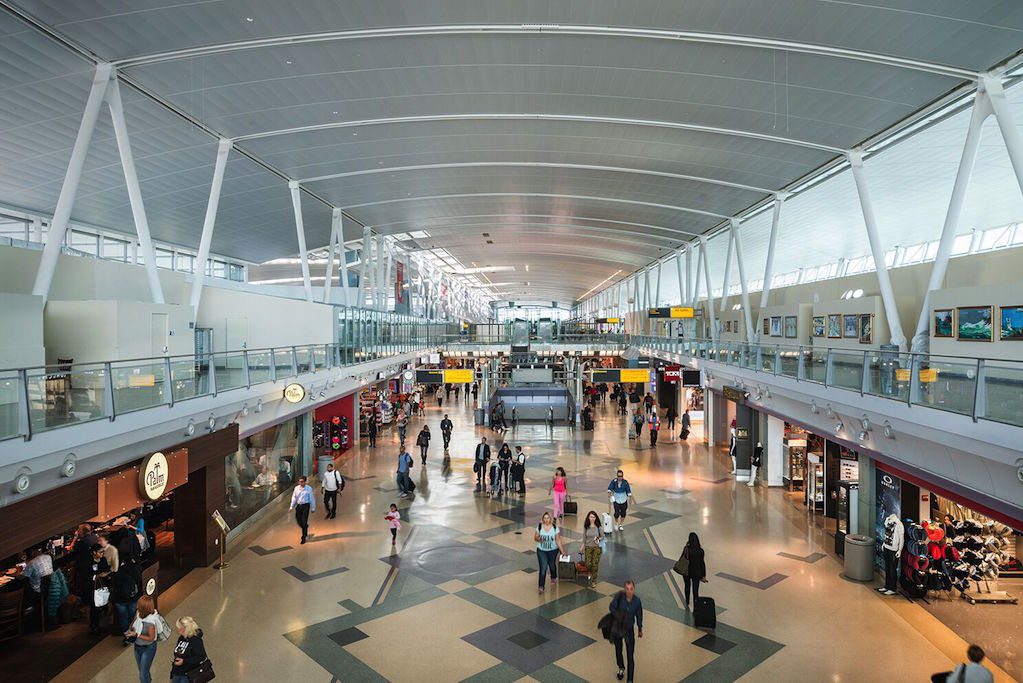I spend a lot of time thinking about how business travel is broken and the ways that travelers themselves try to make the experience more enjoyable. Often, it starts with more choice in the trip search and booking process.
Some new research from American Express Global Business Travel shows that while U.S. travelers are more likely to go rogue, UK travelers are more willing to try alternative forms of accommodation like Airbnb. Take a look at the breakdown in business travel behavior in my story below.
We also have the latest from Senior Aviation Business Editor Brian Sumers on how North American discount airlines are finally creating compelling loyalty programs for frequent travelers. As low-cost competition has heated up, business travelers who are more cost-sensitive need incentives to stay loyal.
If you have any feedback about the newsletter or news tips, feel free to reach out via email at as@skift.com or tweet me @sheivach.
— Andrew Sheivachman, Business Travel Editor
Airlines, Hotels, and Innovation
How U.S. and UK Travelers Differ When on the Company Dime: Business travelers from the U.S. are more likely to disregard travel policy and do whatever they want. UK travelers, though, are actually more adventurous when it comes to choosing where they want to stay on any particular trip.
Discount Airlines Take Frequent Flyer Programs More Seriously After Initial Snub: Not long ago, all discount airlines needed to compete was cheap fares. But times change, and with legacy airlines poaching some of their customers, more ultra-low-cost carriers are taking loyalty seriously.
Airline Loyalty Elites Sit Out a Wave of New Fees: While most of the traveling public saw an increase in baggage fees this month, those carrying airline elite status were once more spared. Sooner or later, that luck will surely run out.
Alibaba Helps U.S. Cities With Mobile Payments for Chinese Tourism Wave: The trick to getting more U.S. businesses to invest in mobile payments will be to convince them that more demand will also soon come from U.S. travelers, who are still largely cash and card-carrying consumers for now.
The Future of Travel
Eventbrite’s Surging IPO Shines Light on Fragmented Event Tech Sector: Eventbrite is a different beast than most event management companies out there since it also acts as a ticketing marketplace for consumers. This doesn’t mean that the wider event space won’t benefit from the increased awareness of event technology as a growing and profitable sector.
25hours Hotels Pilots Its Own Concierge Service for Local Communities: Another day, another attempt by a hotel company to reinvent the role of the hotel concierge.
Park Hyatt Tokyo Focuses on Being Egalitarian Ahead of Olympics Spotlight: Empathy. When was the last time you heard a hotel executive talk about that? General manager Hervé Mazella shares his views on service, what makes the Park Hyatt Tokyo unique, and what he has learned from the Japanese approach to hospitality.
SUBSCRIBE
Skift Business Travel Editor Andrew Sheivachman [as@skift.com] curates the Skift Corporate Travel Innovation Report. Skift emails the newsletter every Thursday.
Subscribe to Skift’s Free Corporate Travel Innovation Report
Subscribe to Skift Pro to get unlimited access to stories like these
{{monthly_count}} of {{monthly_limit}} Free Stories Read
Subscribe NowAlready a member? Sign in here
Subscribe to Skift Pro to get unlimited access to stories like these
Your story count resets on {{monthly_reset}}
Already a member? Sign in here
Subscribe to Skift Pro to get unlimited access to stories like these
Already a member? Sign in here

